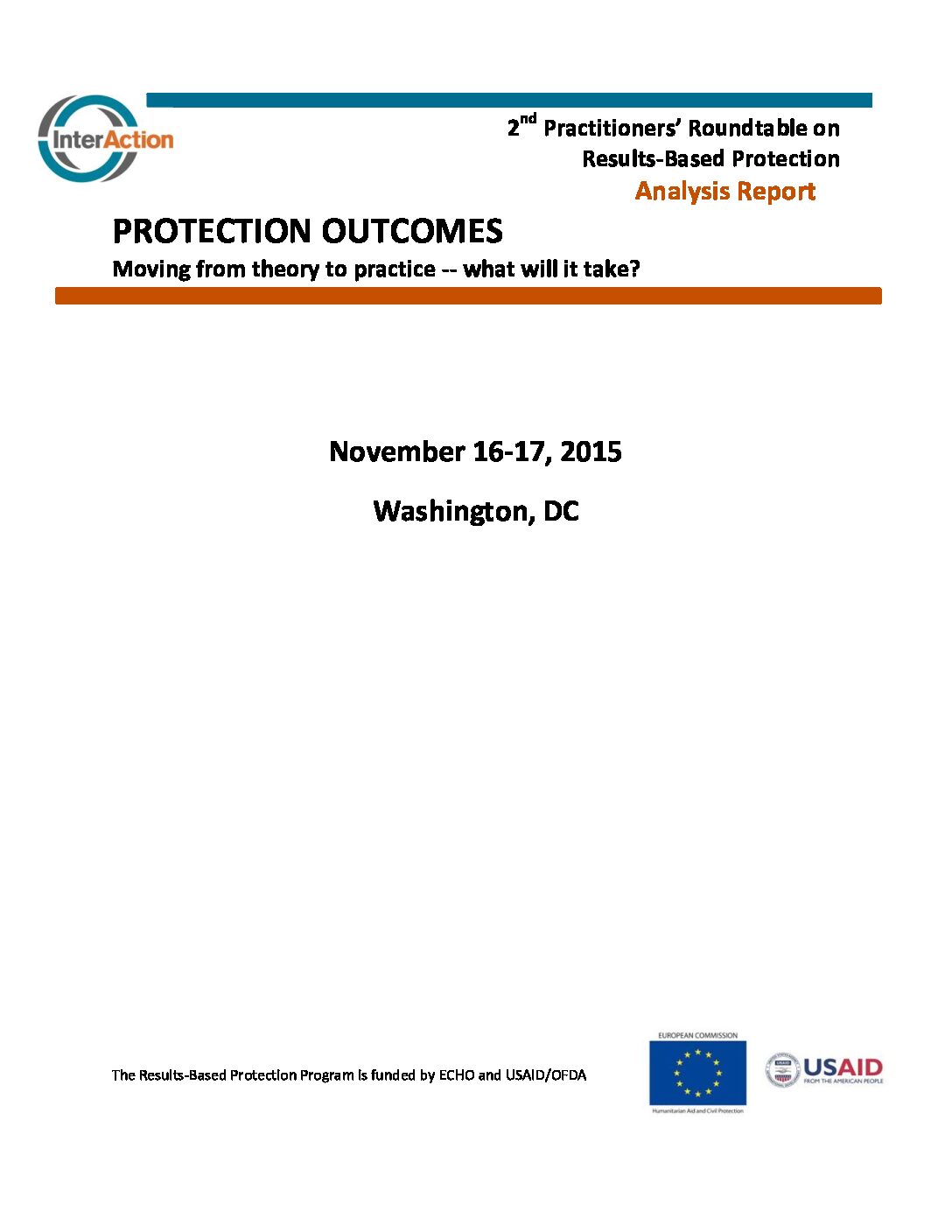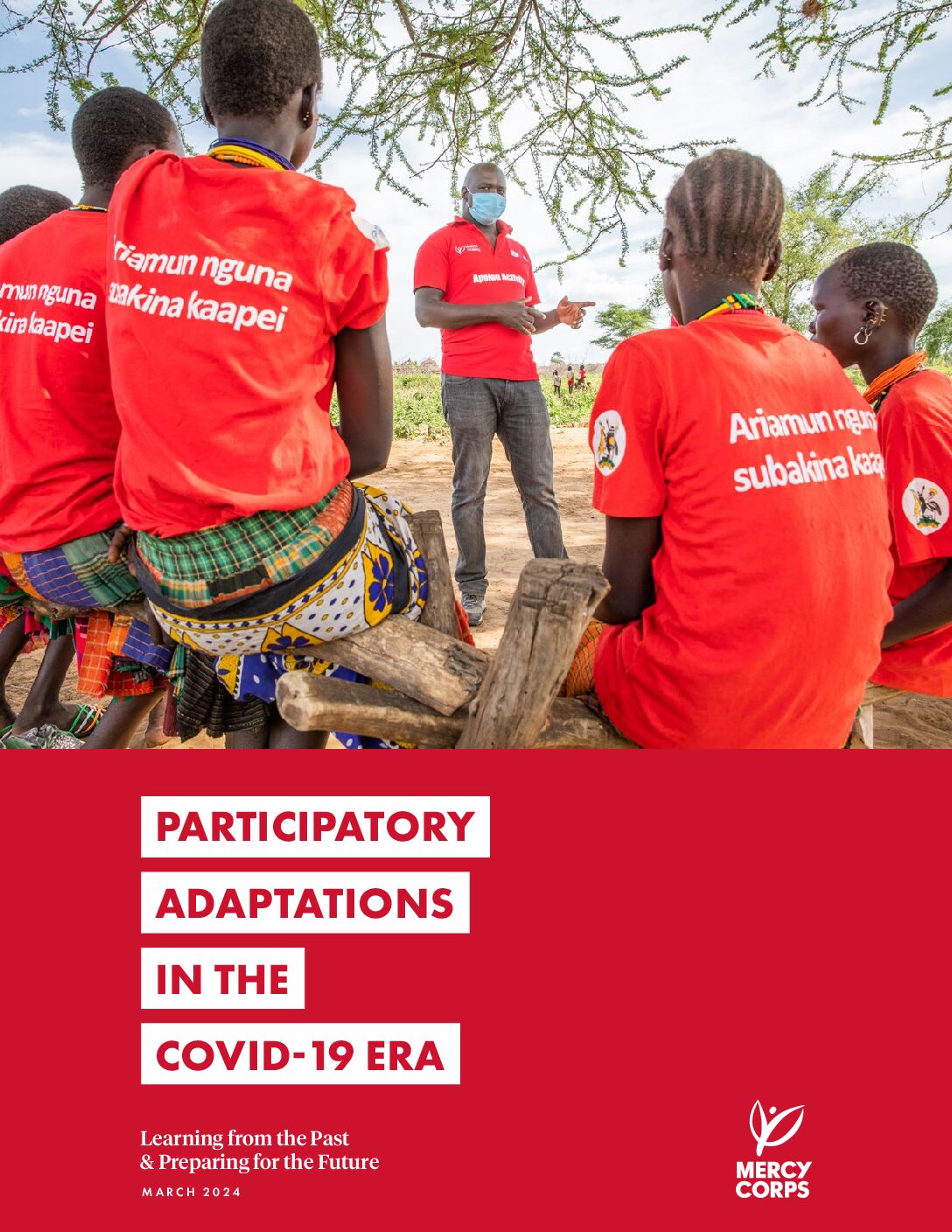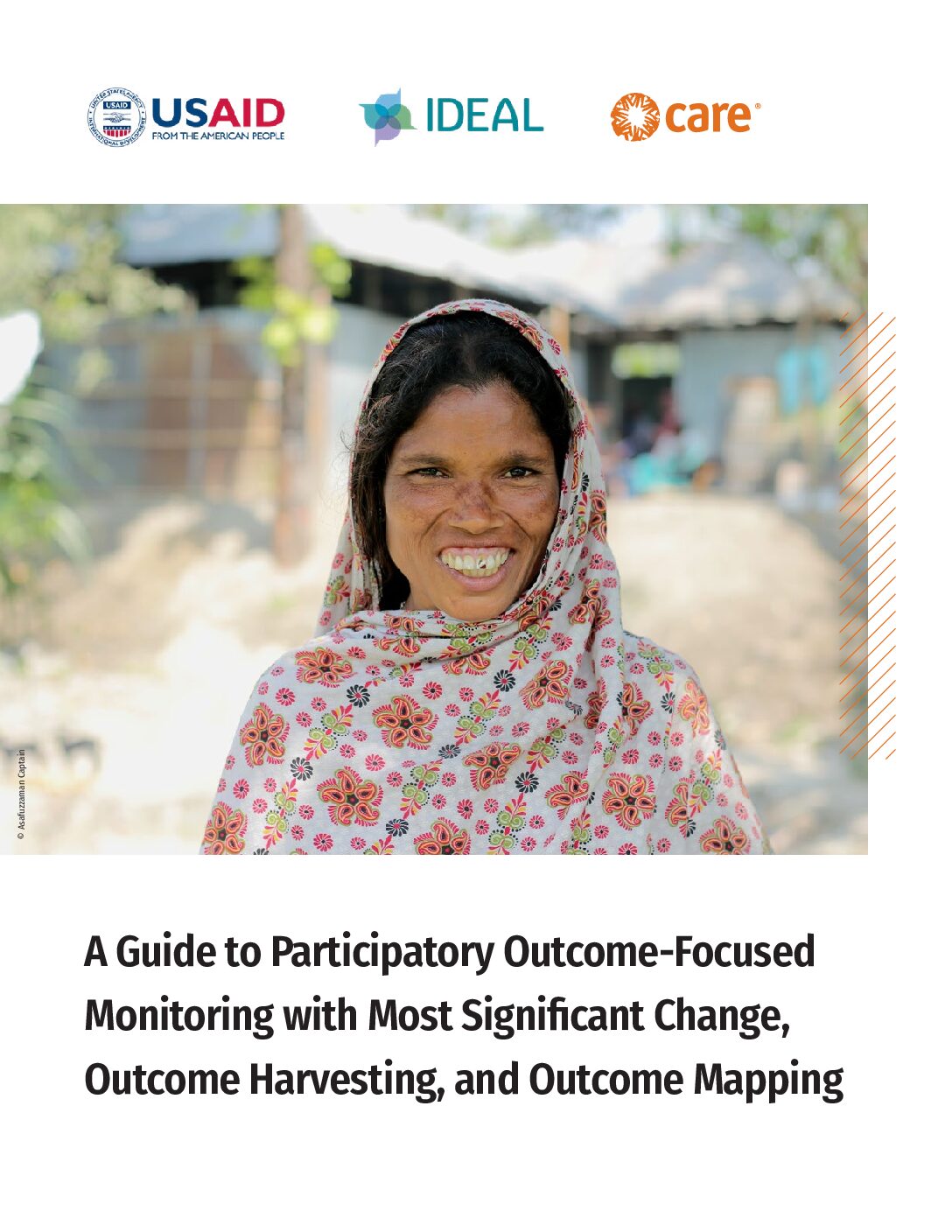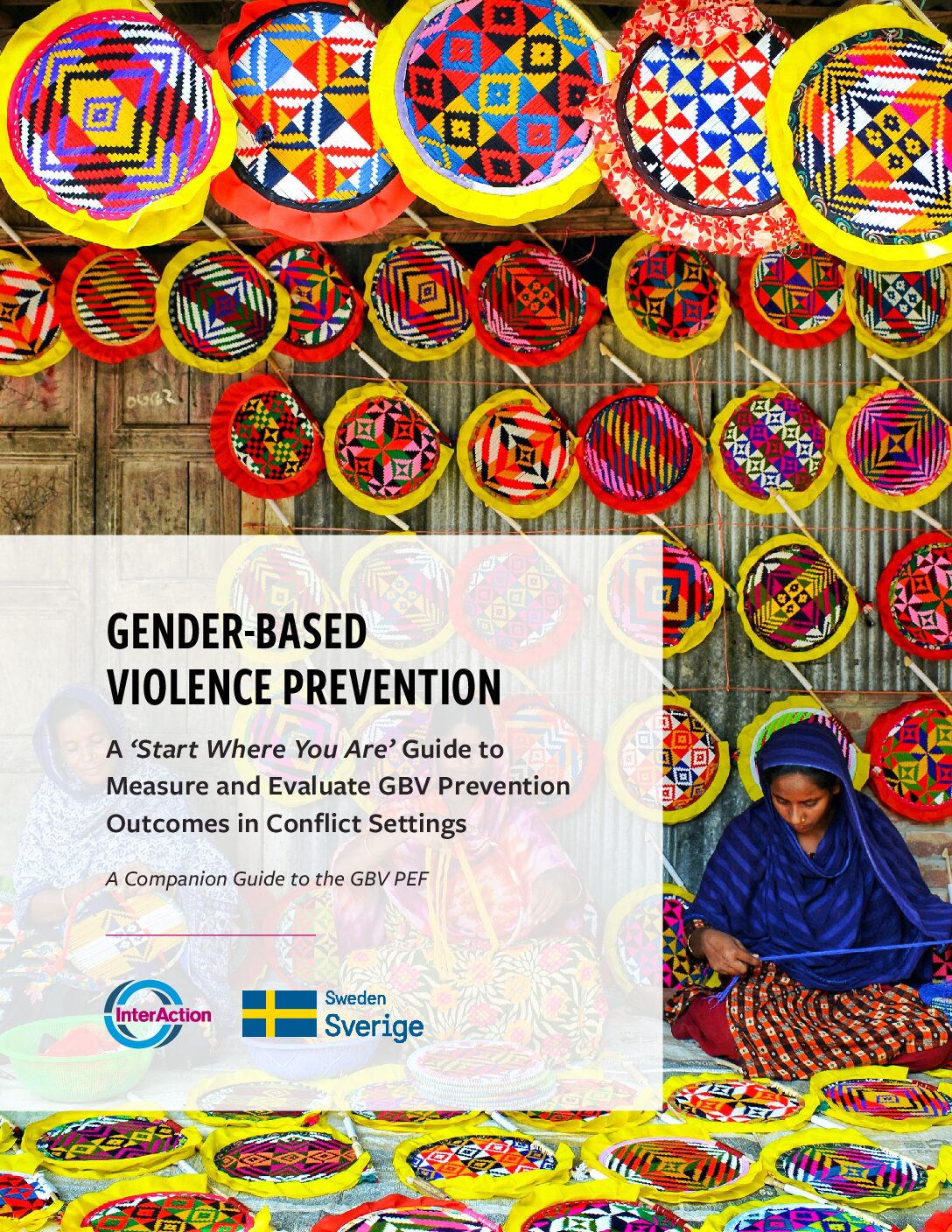Protection Outcomes: Moving from theory to practice – what will it take?
On November 16-17, 2015 over 40 practitioners met in Washington, DC to discuss and examine how to better achieve protection outcomes in humanitarian action. The 2nd Practitioners’ Roundtable on Results-Based Protection, Protection Outcomes: Moving from theory to practice—what will it take? was an opportunity to share progress made over the past three years, elaborate on specific elements that support a results-based approach in practice, and engage in a dialogue to help the humanitarian community think ambitiously about overcoming barriers to results-based approaches to protection.
Some cross-cutting issues emerged during the Roundtable
- There is a need to reframe “success and failure.” This issue was raised repeatedly and included questions about how we define and measure a protection outcome, using a phased approach to protection analysis, and how we shift from merely gathering evidence to establishing a culture of sharing, learning, reflection, and adaptation.
- Understanding multi-sectoral and multi-disciplinary contributions to achieve protection outcomes and the need for an overall shift towards integrated protection underpin an outcome-oriented approach. To end human suffering—whether through prevention or as a response to violence occurring—requires contributions by multiple actors, using multi-disciplinary and multi-sectoral efforts, to target various components of risk at multiple levels.
- Results-based protection can drive enhanced professional skill sets to navigate complex issues by analyzing, anticipating, and managing dynamic relationships within humanitarian action. We cannot ignore or dismiss the inevitable and complex social and professional dynamics—both good and bad— associated with such multi-faceted collaboration addressing extraordinarily complex issues. By using a results-based approach we can better manage, anticipate, and monitor changes between relationships that have a direct impact on specific milestones to achieve protection outcomes.
- Outcome-oriented methods should frame how we analyze, design, implement, monitor, and evaluate any response for protection. We need to return to a problem-solving approach that empowers field staff to uphold principles and standards in order to make decisions with confidence, informed by context-specific analysis, and tap into community-driven protection mechanisms.
What’s Next?
- From 2016, InterAction will shift gears to focus on dissemination, promotion and support for implementation of results-based approaches, while still collecting and incorporating new input and findings into materials. We foresee three main activities that will be carried out over the next phase of the program:
- Convene and facilitate a learning network to act as a platform for peer exchange and to contribute to a body of practice on results-based protection.
- Document and publish field-based results-based protection case studies; and
- Develop and disseminate results-based protection materials, including messages and information products designed for different audiences.
Help Expand our resource library
"*" indicates required fields



